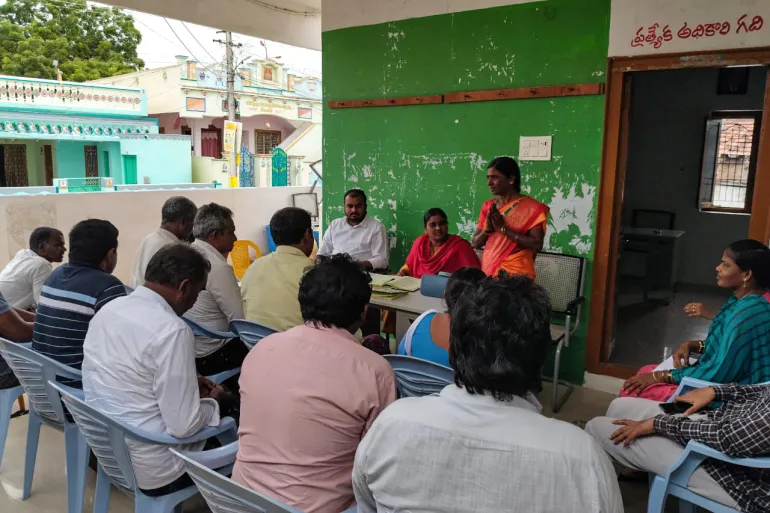AS soon as Meda Ramana was elected the head of Garapadu village council in the southern Indian state of Andhra Pradesh, several residents complained to her of being wrongfully excluded from government welfare schemes.
About 50 villagers – mostly women of the Dalit, Indigenous and religious-minority communities – told her in early 2021 that their annual welfare benefits, of 10,000 rupees ($119) to 120,000 rupees ($1,430), under various schemes, had been abruptly stopped by the state government.
At first glance, it seemed to be an innocuous data entry error. But when Ramana enquired about the reasons, staff at the village secretariat told her the villagers were ineligible for the welfare because they had “migrated”. Ramana told the secretariat that the complainants were very much living there, but to no avail.
She then complained to higher officials in the district administration who ordered the village staff to conduct a probe. But the village staff ignored those directives. It was at this point that Ramana began to smell a political ploy.
Andhra Pradesh is one of the two states that held regional elections in May 2024, during the time of India’s national poll that re-elected the Narendra Modi-led Bharatiya Janata Party (BJP). The Andhra Pradesh state election was fought between two dominant regional parties – the incumbent YSR Congress Party (YSRCP) and the Telugu Desam Party (TDP).
The TDP won, but in the run-up to the elections, the outgoing YSRCP government ran a sophisticated, data-driven voter influence campaign that wrongfully denied poor and vulnerable communities their welfare benefits because members of those communities were likely to vote for the opposition, our investigation reveals.
Multiple media reports have highlighted how governing parties in India – the BJP at the national level and others in the states – have accessed and misused government-collected personal data of citizens in past elections. The TDP did the same when it was in power in Andhra Pradesh during the previous election in 2019.
Our investigation reveals, for the first time, the real-world harm caused by such misuse – with the vulnerable being denied their rightful welfare benefits and their rights to exercise free choice in elections undermined.
Welfare delivery was a major election plank in Andhra Pradesh. The then-incumbent YSRCP government said it transferred about 4.3 trillion rupees ($50.7bn) in its five-year term to about 127.4 million poor and marginalised people, including through pensions and housing and food support.
It appointed paid “volunteers” to “proactively” deliver welfare at citizens’ doorsteps, replacing the traditional method in which elected village councils, known as panchayats, administered the welfare.
One volunteer was appointed for every 50 households – approximately 260,000 volunteers covered more than 1.3 million households in the state. Every volunteer was paid 5,000 rupees ($60) per month from the state exchequer.
The YSRCP government also gave this army of volunteers unfettered powers and technological tools to indiscriminately harvest the personal data of citizens. It used the data to create voter “profiles” and predict their political choices.
The information was then used by the government volunteers and YSRCP cadres to influence these voters including through dubious tactics like excluding opposition-inclined voters from welfare schemes.







